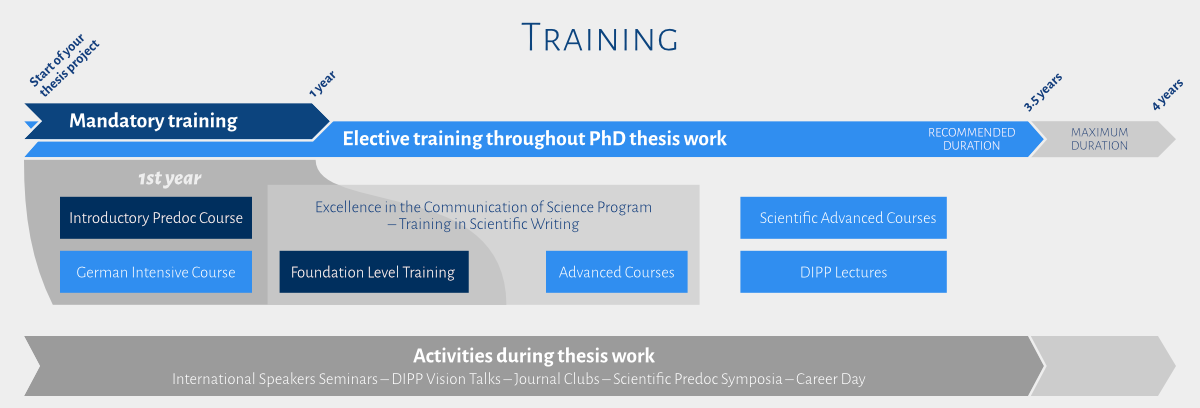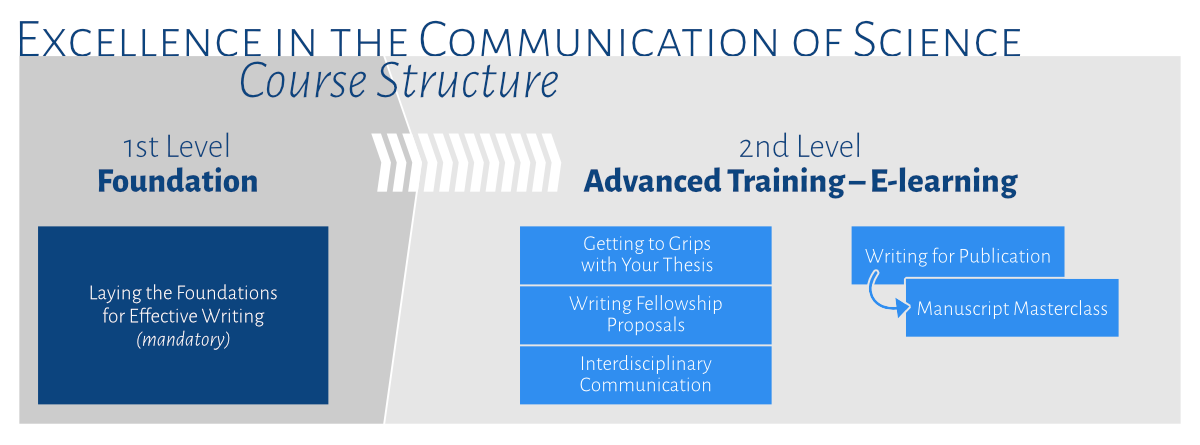Training
Within the DIGS-BB program, advanced training courses are seen as a backbone of a strong PhD thesis, helping to improve the capabilities, productivity and performance of our PhD students. Our training is divided into two parts: a mandatory part for all first-year PhD students as a requirement for completion of their PhD degree and an elective part, which can be used to acquire additional skills that will enhance their PhD degree.
The mandatory part is composed of an Introductory Predoc Course and the Foundation level scientific writing course.
Thesis Supervision
Another hallmark of the DIGS-BB is the provision of expert mentoring and thesis supervision by each student’s Thesis Advisory Committees (TAC). Each TAC is composed of three experienced DIPP faculty members usually representing different PhD program disciplines and research institutions. The TAC will accompany each PhD student throughout the thesis work.
PhD students at the DIGS-BB will meet their TAC on 3 or 4 official occasions: 3 months after the start of the PhD, 1 year, 2 years and 3 years after. On occasion, they also meet half a year before the end of the PhD (4 years as a maximum). For each TAC meeting, PhD students prepare a report and a presentation on the current status of their thesis work. At the end of each TAC, the scientific performance of the PhD student is evaluated and recommendations are made for future work. But the role, usefulness of the TAC does not stop here. Each member of the TAC can be approached individually at any time during the PhD period for guidance and recommendations.
Graduate Academy of the TU Dresden
Due to the fact that DIGS-BB PhD students are members of the Technische Universität Dresden, they can not only profit from the offers of our PhD program but also from the trainings, workshops, and funding schemes the TUD Graduate Academy (GA) provide through its various support programs.




